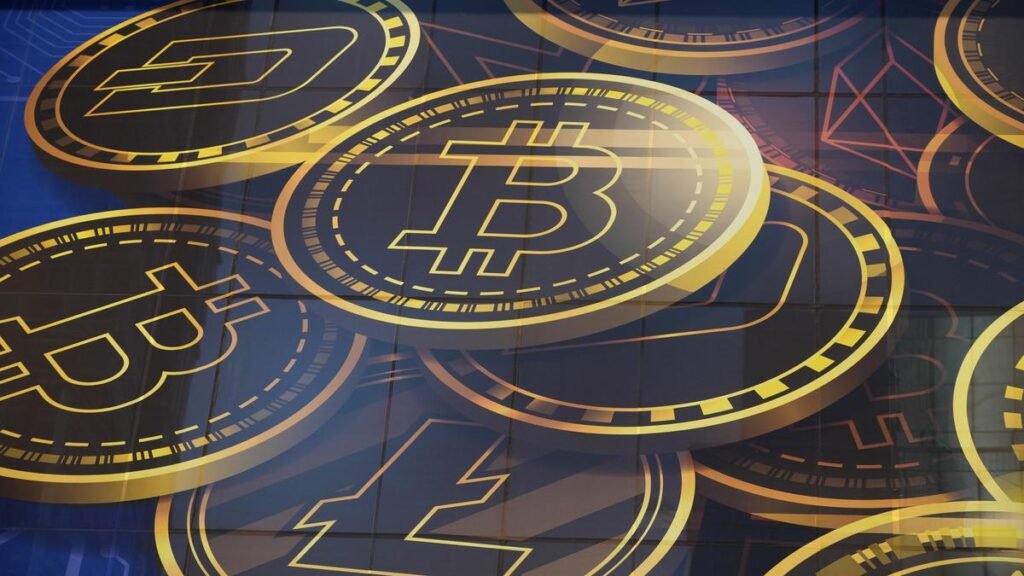Two decades ago, if you had told someone you were investing in a currency not regulated by the government, or didn’t bear the signature of the RBI Governor and couldn’t be seen but only stored in virtual wallets, they would have laughed at you.
Fast forward to 2025. Several firms have started accepting crypto payments. Millions of people, including in India, are investing in crypto coins. But should you blindly jump on the crypto bandwagon?
Only if you have the knowledge of its working. If you don’t know what you’re buying, you are gambling with money.
So, before you start driving the crypto vehicle, let’s decipher how this engine is built and what its spare parts are. How does the vehicle operate without the driver – that is the Central bank? And, the fuel that runs the vehicle.
To answer all the questions, we need to understand a technology that fuels this complicated and evolving system — the blockchain. It’s the backbone – or the engine – that drives the crypto vehicle. Let’s find out what makes it so different compared with traditional investments.
About cryptocurrency
The term ‘crypto’ is derived from the Greek word ‘kryptos’, which means hidden or secret. As the name indicates, cryptocurrency, popularly known as crypto or coins, uses cryptography to secure transactions. You cannot see or touch the crypto coins physically. You need not visit a bank for a transaction. It’s not controlled by any single institution such as the SEBI, the RBI, or even the Government of India.
The entire process is executed behind several layers of encryption, algorithms, and codes on multiple servers. It’s a decentralised network of computers, called nodes, that verifies and records each transaction. The nodes ensure transparency and security without the need for centralised intermediaries.
What is blockchain?
Imagine the blockchain as a combination of a traditional accountant’s notebook, wherein everyday transactions are recorded, and a common Google Sheet, the link to which is shared with people across the world.
In a traditional ledger, each page contains several transaction entries. Once the page ends, you flip to the next page to record fresh transactions. None of the fresh pages is isolated; the closing balance of the previous page becomes the opening balance of the next, viz., each page is linked to the previous one. Once it is completed, it can’t be altered or erased.
In cryptocurrencies, this digital ledger is known as blockchain. Technically, blockchain contains the complete transaction history of a particular cryptocurrency. Every time a transaction takes place, someone makes an entry into this digital notebook. In a blockchain, each page is called a block. Once a particular block is done with the transactions, it’s sealed permanently, time-stamped and linked to the next block (page) through a unique code called hash.
In a similar vein, you can keep adding block after block to the digital ledger, forming a long chain. That’s why this digital ledger is called blockchain.
In a traditional setup, not everyone has access to a manual accounts book, except the chief accountants or the authorities concerned. But blockchain is like a globally shared Google Sheet, and everyone in the network has the link to it. Since anyone can access it, they can view the entries in a block and add new ones. But here’s the catch: no one can delete, erase or tamper with the previous entries, and the transaction history is recorded forever.
How does it work?
Every time a transaction occurs, say, Ram sends a crypto coin to Shyam, it gets bundled with the previous transactions into a block. If Shyam then sends the coin to Nitish, that transaction is also added to the same block. Once the block is full, it’s sealed and linked to the next block with a hash. Further, whenever a new entry is made, everyone in the network can see the updated record – think of it like a shared G-Sheet. Thus, a blockchain ensures transparency, security and trust, and all these happen without the aid of a bank, without a central authority or an intermediary. Everything is taken care of by the behind-the-screen nodes.
Now that you know what a blockchain is, the next question is who adds the blocks and how they get added. This is the foundation on which lies the operation of cryptocurrencies and is helpful in deciding if a coin is worth investing in. We’ll explore that in detail in the next part.
(The writer is an NISM & CRISIL-certified Wealth Manager and certified in NISM’s Research Analyst module)
Published – August 25, 2025 05:06 am IST

